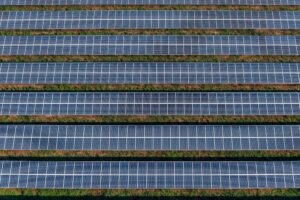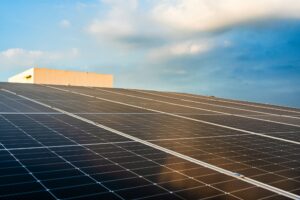Off-grid solar panel systems are becoming increasingly popular as a means of achieving energy independence, especially in remote areas where access to the traditional power grid is limited or nonexistent. These systems allow homeowners, businesses, and even entire communities to generate their own electricity, reducing reliance on fossil fuels and providing a sustainable energy solution.
However, going off-grid is a significant commitment that requires careful planning and understanding of both the benefits and challenges involved. Let’s explore the pros, cons, and considerations of off-grid solar panel systems.
An off-grid solar panel system is a complete energy solution that operates independently of the public electricity grid. It consists of solar panels that capture sunlight and convert it into:
An inverter to convert the stored DC power into AC power usable by standard appliances

Now that we’ve delved into the main advantages and disadvantages, let’s take a look at some crucial things to consider before committing to an off-grid solar panel system.
There are several effective ways to integrate solar energy with other renewable energy sources. These methods include hybrid power systems, microgrids, energy storage solutions, and smart grid technologies.
Before installing an off-grid solar system, it is crucial to conduct a thorough assessment of your energy needs. This includes understanding your daily energy consumption and considering potential future increases in demand.
Pro Tip: Following the latest in solar trends will help make a more informed decision about your energy needs and what solar panel system is best for you.
Learn more about solar trends here: 7 Solar Trends in 2024: Shaping the Future of Energy
Choosing the right battery storage system is critical for the reliability of an off-grid system. Factors such as battery capacity, lifespan, and maintenance requirements should be carefully considered.
The effectiveness of an off-grid system depends on the amount of sunlight available in your location. Areas with long winters, heavy cloud cover, or limited sunlight may require additional planning and potentially larger systems to ensure a consistent power supply.
For more info on optimizing solar panel efficiency during winter, read our article: Keeping Your Solar Panels Efficient During Winter Weather: What You Need to Know

In case of prolonged periods of insufficient sunlight, having a backup power source, such as a generator, is essential to ensure a continuous energy supply.
Going completely off-grid is a big commitment. Off-grid solar panel systems offer a viable and sustainable solution for those seeking energy independence. While the benefits are significant, including environmental impact and long-term cost savings, the challenges and initial costs are not insignificant.
Professional guidance, careful planning, a clear understanding of energy needs, and ongoing maintenance are essential for the success of an off-grid solar system. Contact Gurr Brothers Energy if you’re taking the step towards energy independence.
By weighing the pros and cons and considering all the factors involved, you can make an informed decision that aligns with your energy goals and lifestyle!
Author: Hunter S.
Give Gurr Brothers Energy a call today and let’s start powering your life with sunshine!